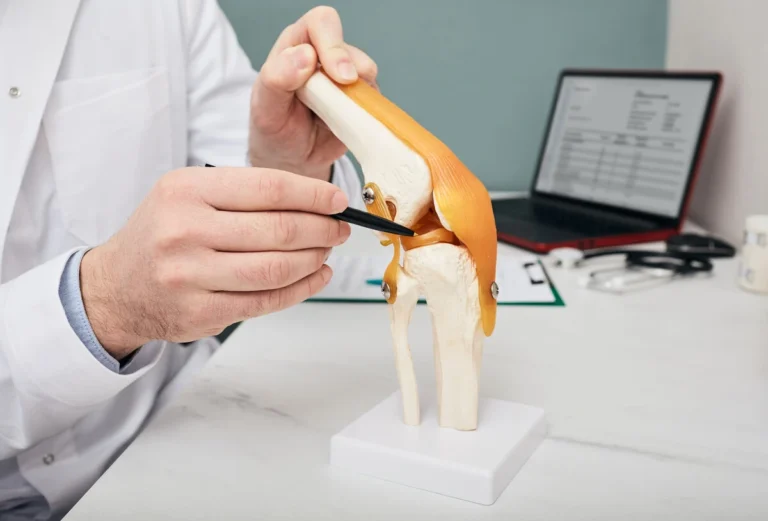What Is Better For Shoulder Pain, Cold Or Hot?
Overview of Cold Therapy Benefits
Cold therapy, also known as cryotherapy, is a popular treatment that helps alleviate shoulder pain. Applying ice or a cold pack reduces inflammation and numbs the affected area, providing relief from pain and swelling. Cold therapy is particularly beneficial immediately after an injury or during an acute pain episode, as it constricts blood vessels and decreases fluid buildup, which can help prevent extensive tissue damage. For conditions like shoulder impingement, using ice can minimize irritation and facilitate a quicker recovery period.
Book your appointment today at Bull City PT’s Durham – Charlotte – Brier Creek offices.
Situations Where Heat Therapy is Beneficial
In contrast, heat therapy is ideal for soothing chronic shoulder pain or muscle stiffness, as it aids in increasing blood flow and relaxing tense muscles. This type of therapy can be particularly helpful for conditions where muscle tension prevents full range of motion or causes significant discomfort, such as certain forms of tendinitis. By applying heat, the muscles and surrounding tissues become more pliable, assisting in the restoration of normal shoulder function. If the pain is long-lasting or residual after an acute event, switching to heat therapy may prove advantageous.
Comparison of Heat and Ice for Various Shoulder Conditions
Determining whether to use heat or cold for shoulder pain often depends on the timing and nature of the condition. For injuries accompanied by inflammation, like shoulder impingement or sudden muscle pain, starting with ice is usually the best course of action. Conversely, heat might be more suitable for persistent pain or stiffness with little active swelling. It’s crucial, however, to remain attentive to the body’s responses to each treatment. If pain worsens or does not improve, consulting with a physical therapist at Bull City PT can help tailor a personalized therapy approach to your shoulder’s specific needs.
How Do You Know If Shoulder Pain Is Muscle Or Joint?
Signs that Indicate Muscle Pain
What causes shoulder pain? Understanding whether your shoulder pain stems from muscle issues can significantly guide treatment. Muscle pain usually arises from strain or overuse and is often described as a deep, aching sensation. Common indicators include tenderness upon touching the muscle, increased pain during physical activity that involves moving the shoulder, and possible muscle spasms. These symptoms suggest the involvement of the muscular system, and therapies involving heat or ice can be beneficial when utilized alongside strengthening exercises.
Indicators of Joint-Related Pain
Joint-related shoulder pain presents quite differently from muscle pain. It often feels as if it’s coming from within the joint, characterized by stiffness, a dull ache, or unusual sounds or sensations like grinding or popping when you move your shoulder. Conditions such as arthritis are common culprits of joint pain. In such cases, a patient might consider ice or heat for arthritis shoulder pain to alleviate discomfort.
Differentiating Symptoms Between Muscle and Joint Pain
It is crucial to note the subtle differences between muscle and joint pain as they guide treatment and therapy decisions. Muscle pain is more intense with activity and tends to respond to rest, while joint pain might persist regardless of activity level. Muscle pain may benefit from alternating ice or heat application, whereas joint pain might need more specialized interventions. If symptoms persist, consulting a healthcare professional, such as a physical therapist at Bull City PT, is recommended to ensure accurate diagnosis and appropriate treatment planning.
How Do You Stop Shoulder Pain ASAP?
Immediate Home Remedies for Shoulder Pain
When shoulder pain strikes, it’s vital to address it quickly to prevent any further aggravation. One of the most accessible remedies is to rest the shoulder and avoid activities that may worsen the condition. Gentle shoulder exercises and stretches can sometimes help maintain mobility, especially if stiffness is a concern. Keeping the shoulder immobilized and supported can also aid in reducing strain and discomfort if the injury is more serious.
Effective Use of Ice Packs and Heat Pads
One of the first steps in handling acute shoulder pain is applying ice. Ice packs can reduce inflammation and numb the area, which is particularly beneficial right after an injury. Apply ice, with a barrier in between ice and the skin for 15-20 minutes every two hours for the best results. Once the initial inflammation has decreased, typically after a few days, you might consider using heat. Heat can help relax and loosen tissues and stimulate blood flow to the affected area, speeding up recovery.
Over-the-Counter Treatments and When to Seek Medical Help
Over-the-counter (OTC) pain medications can also be effective in managing shoulder pain temporarily. NSAIDs, such as ibuprofen or naproxen, can help reduce inflammation and pain. However, if the shoulder pain continues without improvement after a few days of self-care, or if it’s severe and impacts daily activities, professional medical advice is essential. Persistent pain might indicate a more complex issue, and consulting with a physical therapist, like those at Bull City PT, can be critical for developing a tailored treatment plan.
What Is The Best Painkiller For Shoulder Pain?
Commonly Recommended Painkillers
Shoulder pain can be debilitating, impacting your ability to perform daily activities. Selecting the right painkiller is crucial for managing shoulder pain effectively. Nonsteroidal anti-inflammatory drugs (NSAIDs), such as ibuprofen and naproxen, are commonly prescribed. They work by reducing inflammation and alleviating pain, making them particularly effective for conditions like arthritis, shoulder pain, and rotator cuff injuries. Acetaminophen is another option that can relieve pain but does not reduce inflammation, which might be suitable for those who cannot take NSAIDs due to stomach issues. It’s essential to consult with your healthcare provider to determine which medication suits your specific condition best.
Considerations When Choosing a Painkiller
Choosing the right painkiller involves considering multiple factors, including the underlying cause of shoulder pain, your medical history, and the presence of any other health conditions. It’s important to be cautious with the use of painkillers, particularly NSAIDs if you have a history of gastrointestinal issues or cardiovascular disease. A healthcare professional can guide you in weighing the benefits and risks of each medication option. In some cases, adjunct therapies such as physical therapy might be recommended to address the root cause of pain rather than relying solely on medication.
At Bull City PT, we understand the complexity of addressing shoulder pain effectively. Our customized treatment plans include advanced therapeutic techniques tailored to your needs, ensuring a path to recovery that’s both safe and effective. Take the first step towards comprehensive pain management by scheduling an appointment with our experts today. Prioritize your health with our professional care.








